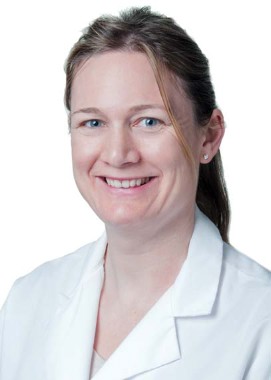Universal testing of colorectal cancers for DNA mismatch repair genes is the strategy most likely to identify the approximately 1%-3% of patients who have Lynch syndrome, according to a report in the Oct. 17 issue of JAMA.
Correctly identifying the small subgroup of colorectal cancer (CRC) patients who have Lynch syndrome is crucial so that their presymptomatic relatives can be found and all the affected family members can consider preventive measures to limit their morbidity and mortality.
Dr. Leticia Moreira and her colleagues in the EPICOLON consortium, an international network of colon cancer cohorts, pooled data involving 10,206 probands to show that "universal tumor MMR testing followed by germline testing offers the highest sensitivity," compared with other strategies, "although the increase in the diagnostic yield is modest" (JAMA 2012;308:1555-65).
This research highlights the limitations of various methods for identifying the subgroup of colorectal cancer patients who have Lynch syndrome and should remind clinicians "that simply asking about a family history of CRC in a first-degree relative will miss the majority of patients with Lynch syndrome," because only 43% of patients with Lynch syndrome have such a family history, wrote Dr. Uri Ladabaum and Dr. James M. Ford of the gastrointestinal cancer prevention program and clinical cancer genetics program at Stanford (Calif.) University in an editorial accompanying the study (JAMA 2012;308:1581-3).
"The majority of CRC patients do not have Lynch syndrome. But in the haystack of patients with CRC, those with Lynch syndrome are more like large knitting needles than tiny sewing needles – and a systematic search can find them," they wrote.
Lynch syndrome, also known as hereditary nonpolyposis colorectal cancer, is the most common form of familial colorectal cancer and is caused by germline mutations in the DNA mismatch repair (MMR) genes MSH2, MLH1, MSH6, and PMS2. Dysfunction of these genes causes an accumulation of errors during DNA replication, particularly in the repetitive sequences called microsatellites.
"As a result, tumors of patients with Lynch syndrome characteristically demonstrate MMR deficiency, defined as the presence of microsatellite instability or loss of the MMR protein expression, which is the hallmark of this disorder," the investigators wrote.
Several sets of guidelines have been issued for identifying which colorectal cancer patients should undergo tumor DNA testing to reveal these traits, but none have proved sensitive and specific enough to do an optimal job, and all have been difficult to apply in clinical practice, said Dr. Moreira of the University of Barcelona and her associates.
"Unless there is strong clinical suspicion, the majority of cases remain undetected, leading to the lack of implementation of highly effective preventive measures" including intensive screening by colonoscopy and prophylactic removal of targeted organs, they noted.
By pooling the data from four large cohorts of colorectal cancer patients around the world, the researchers compared the effectiveness of different screening strategies for identifying Lynch syndrome. Universal testing of the tumors for DNA MMR abnormalities was the most effective method, with a sensitivity of 100% and a specificity of 93%.
In comparison, use of the revised Bethesda guidelines will fail to detect approximately 12% of cases, use of the Jerusalem recommendations will fail to detect approximately 15%, and use of a "selective strategy" will fail to detect approximately 5%, the investigators reported. The specificities of the strategies ranged from 95.5% with the "selective strategy" to 97.5% with the revised Bethesda guidelines. The investigators developed the "selective strategy" for screening by using the most sensitive variables in a bivariate analysis: CRC diagnosis at 70 years and fulfillment of at least 1 criterion of the revised Bethesda guidelines.
The diagnostic yield of universal MMR testing followed by germline testing was 2.2%. In comparison, the diagnostic yield of the revised Bethesda guidelines was 2.0%, that of the Jerusalem recommendations was 1.9%, and that of "selective criteria" was 2.1%.



